Participation in EAIE Conference 14. sept 2011 ,skrevet av Ane
Participation in EAIE Conference 14. sept 2011
I was invited by SIU to present a paper at the EAIE-conference 14. sept 2011. EAIE (http://www.eaie.org/copenhagen/) claims to be the largest international education conference in Europe. I was invited to participate in the opening meeting of one of the sub-committees, and to share our experiences about running projects in South Sudan. SIU chaired the session, and this is the abstract for the session:
“University cooperation as a building stone in fragile states – the case of South Sudan:
What are the challenges in building universities in fragile states? How can cooperation
with European universities contribute to the development of universities in a country like South Sudan? The speakers in this session will share their experiences from a cooperation programme between universities in South Sudan and Norway.
chair: Jon Simonsen, Norwegian Centre for International Cooperation in Higher Education (SIU), Bergen
speakers: Aggrey Abate, University of Juba; Ane Landøy, University of Bergen; Caguor
Manyang, University of Bahr El Ghazal, Khartoum; Ouindinda Nikiema, Nuffic, The Hague”
So this is what I said, with the pictures from my powerpoint-presentation in between:
«University cooperation as a building stone in fragile states – the case of South Sudan»,
Ane Landøy, University of Bergen Library
Dear all, thank you for inviting me to participate in this session, and to share some of our experiences and perspectives in participating in the collaborative projects funded by NUCOOP. (NUCOOP is a special program for South Sudan funded by the Royal Norwegian Ministry of Foreign Affairs.)
I have been asked to share with you:
– Experiences and perspectives from running NUCOOP-supported collaborative projects. Best practices and challenges.
– The collaboration with Makerere University; experiences from regional partnerships/South-South-North collaboration.
– Describe risks of asymmetry and inequality in the South-South-North partnership, and how to answer/mitigate such risks.
(From the Sudan workshop on Library Education, 2010, arranged by EdLib)
And this I will do on the background of three projects that University of Bergen Library has been involved in, in South Sudan.
The first project is called “Juba University Library Automation Project” and runs from 2008-2011/2012. The aim is to build a modern university library, that can support research and teaching at University of Juba. It will do so by buying books, implementing an electronic library system and training the library staff.
The second is called “Educating Librarians for the future” and runs from 2009-2012/13. The aim here is to educate and train librarians from the three main universities in South Sudan.
Both these projects involves Makerere University in Uganda, both the University Library and the School of Librarianship, as well as the Norwegian School of Librarianship at Oslo University College in Norway.
And both these projects won close to 1 million euro each in funding.
The third project is a smaller building project, funded by the Royal Norwegian Embassy in Khartoum, for a library and information training centre in Juba.
Our partner in Sudan has mainly been University of Juba. At the moment we are happy and fortunate enough to have Ms Faiza Ali Ahmed as coordinator in South Sudan for both Julap and EdLib-projects.
Part of why we as a library are involved in this kind of projects, can be found in the University of Bergen Library strategic plan, where we have said
- “The global knowledge society requires active networks and increased cooperation; internationally, nationally and regionally.
- (…)
- Participate in national and international academic library collaboration
- Participate in international cooperation projects, particularly with a view to support institution-building in developing countries”
The overall experience with running projects in South Sudan is the immense feeling of doing something worthwhile and useful, something that will benefit a lot of people for a long time to come, as well as a great learning opportunity for our own institution of higher education. Yes, the learning curve has been steep, and yes, the frustrations have been there. The differences are huge between us close to the North Pole and our colleagues near the Equator, and that is one of the reasons also that our collaboration with Makerere in these projects has been vital.
Achievement: Four Juba students in Makerere, doing their degrees in Library Science
When it comes to “best practices” I am not so sure. These have been the first major projects with this degree of external funding that we as a University Library have been doing, and I really think that we will need to wait to the next projects before we can talk about that. We have some achievements – trained library staff, educated librarians, an open source electronic library system, books in the catalogue and books in the shelves, computers and access to information for students and staff of University of Juba. We have learned some lessons, about setting up structures for information, about involvement of administrative support staff in our two universities, and about transparency. And we have some challenges when it comes to money, distance, ownership of the project, internal structures and the different cultures.
The collaboration with Makerere is vital, as I said. This collaboration builds on an existing memorandum of understanding between the two universities at the vice chancellor/rector-level, where the Makerere University Librarian has asked University of Bergen Library to act as consultants for converting the printed catalogue into the electronic. Also, there have been several instances of training in Bergen or Makerere for the MakLib-staff with Bergen staff, for different subjects.
On this background, it was natural for us to ask Makerere to participate in the projects, and at the Makerere University campus, the main library and the School of Library and Information Science are next door to each others.
The benefits have been great. Makerere is one hour away from Juba by plane. The costs of living are much lower than in Norway, and it is much easier and more practical to do the training there. The quality of the training and the education is very high. At the same time there has been certain unhappiness at University of Juba about what they see as money going to Makerere instead of to them.
(Achievement: Juba Library staff being trained by Kim Tallerås from Oslo)
Makerere staff has been keen to participate in the project, and coming from an institution with a high focus on training, learning and improvement, they have sometimes been baffled by what they see as a lack of commitment and focus, especially from the University of Juba library leadership. Some of this may be explained by the fact that the library leadership have been very little involved in initiation of the projects, and that the project coordinators have been academics, not from the library.
The last question is about “Risks of asymmetry and inequality, and how to answer/migitate such risks”. I think we must face the fact that there will always be asymmetry and inequality in such projects. Money talks and the ones who control the money control the game. The level of education and training in South Sudan is lower, and our way of doing accountancy and reporting may be difficult to understand – even for ourselves. There are problems with lack of electricity, internet and computers in South.
So what can we do? From our experiences: Information, information, information. Transparency, explain what we are doing, thinking, planning and why. Prepare to meet the other coordinators often face to face, here or there or in-between. Listen, learn and sometimes we also have to compromise. And enjoy the new experiences and the new knowledge that you are a part of, and celebrate the achievements.
Project participants in Juba in 2011
Participation in EAIE Conference 14. sept 2011
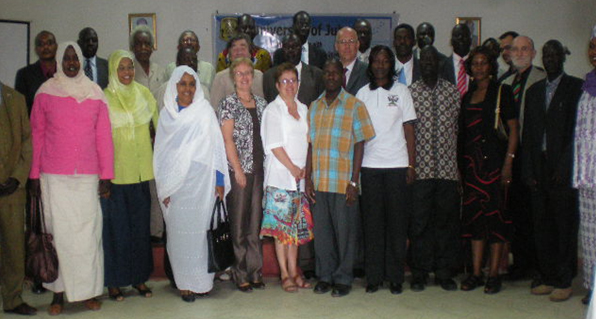
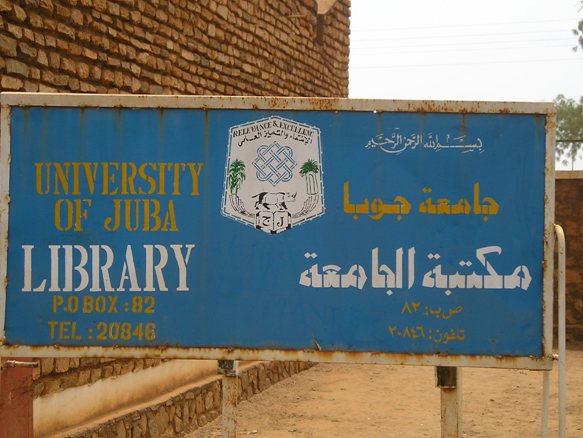
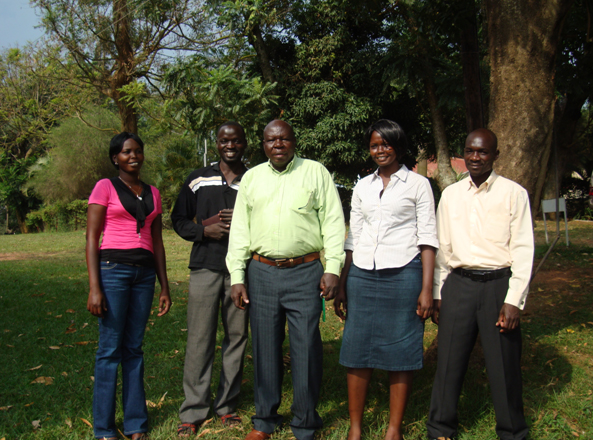
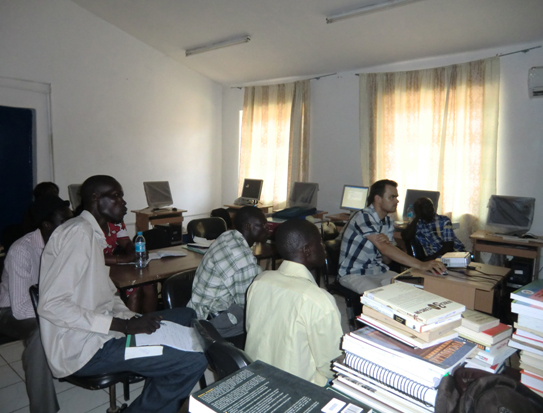
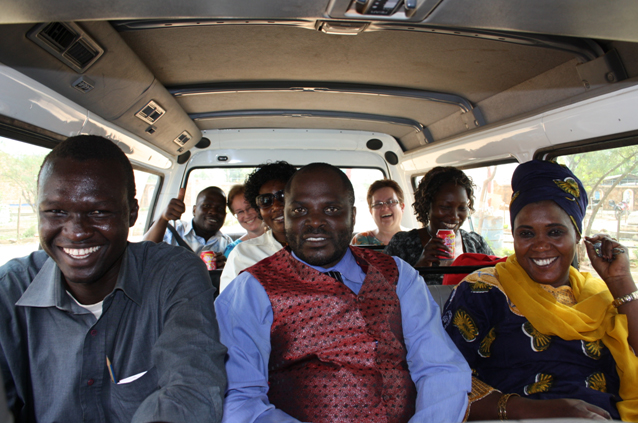
Legg igjen en kommentar